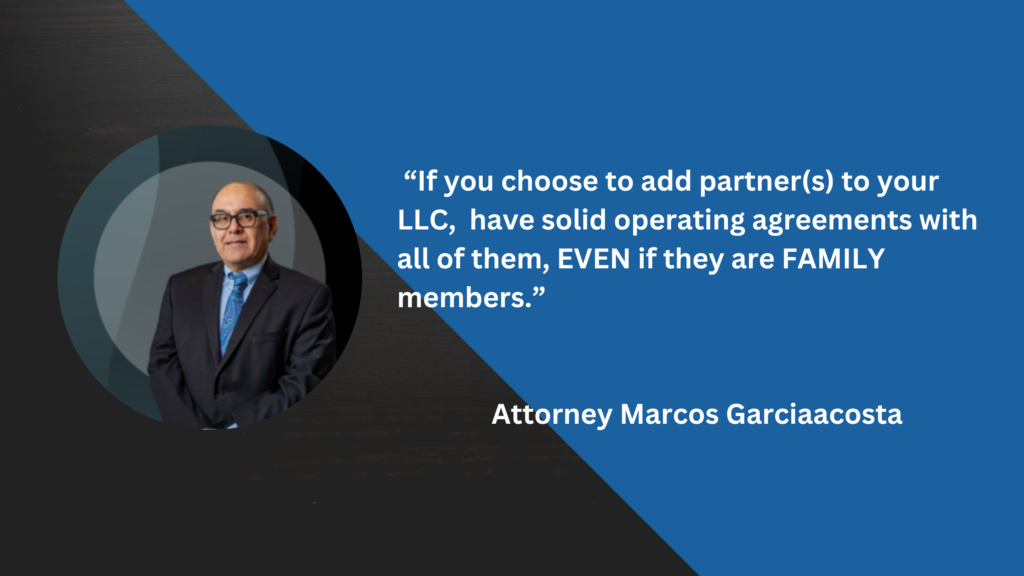Have you ever wondered if there is a foolproof way to safeguard and bulletproof your business and assets from potential lawsuits when running it? You are not alone! The truth is, there is no surefire method to protect your LLC from legal threats completely. However, there are savvy strategic steps you can take to minimize risks, fortify your defenses, and protect your hard-earned money.
So, let’s dive into the world of risk mitigation and explore some practical tips that can help you strengthen the asset protection of your limited liability company.
1.-Have your business formed adequately as an LLC
Properly structuring your business as an LLC is crucial for asset protection. Limited liability companies offer a legal shield that separates your assets from your business liabilities, reducing your exposure to financial risks. By ensuring that your company is correctly formed and maintained as an LLC, you can safeguard your assets and minimize the impact of potential lawsuits on your finances. This shield is not 100% secure but can bring relief, especially by adding additional strategies below. An LLC is a legal entity created by an agency in each state in the USA. In Arizona, the agency is the Arizona Corporation Commission.
Do not forget to obtain your employer identification number or EIN from the IRS. With this number you should open a bank account for your company and file taxes. In addition, businesses you may do work with may ask this important number for tax purposes.
2.-Do NOT have partners in your company
Having partners in your company can complicate matters in terms of liability and decision-making. Even family members can cause problems for a company. We have some horror stories of partnerships that go sour. These disagreements can be devastating financially and cause extreme psychological anguish.
By avoiding partnerships, including in other people´s companies, you reduce the risk of being held personally liable for your partners’ actions, omissions, negligence, and debts, ensuring better protection of your assets. You also reduce their risk of being hauled into court for actions.

3.-Put in place solid contracts
Clear and comprehensive contracts are essential when conducting business. Solid agreements outline the terms and conditions of your business offerings and relationships, minimize misunderstandings, and protect your interests in case of disputes or other legal issues. Well-drafted contracts are vital for mitigating risks and ensuring all parties are accountable for their obligations.
There are several forms of contracts you must implement with your small business depending on your type of offerings. Among them are:
- Operating agreements: Establish relationships with partners in your business.
- Non-disclosure agreements: Also known as NDAs, these documents establish secrecy and secures privacy related to business operations with employees, contractors and customers.
- Purchasing and sales contracts: A purchase or sale agreement, are documents that parties use to define the terms and conditions that will guide the sale, acquisition and transfer of goods or property.
- Mechanic’s Liens: These liens are legal documents that allow contractors, subcontractors, suppliers, and other construction professionals to secure payment for work performed or materials supplied on a construction project. They provide a security interest in the property where the work is performed.
- Contractor’s agreement: Contractors can estipulate conditions for work and it is common among construction professionals.
- Employment contracts: Documents where the employer stipulates his conditions for workers and their relationship at work.
4.- Implement Good Accounting Practices and File Your Taxes
Be strict on the separation of personal versus business accounting and finances. This is part of the basic corporate hygiene that will make your business operations clearer and easier to gather information at tax time. Whether you do your accounting yourself (with or without the aid of an accounting application) or you hire an accountant, placing internal accounting processes will save you time, money and reduce business liability. You should keep a bank business account separately from your personal account, otherwise if you comingle your personal finances with your business’, in case of a lawsuit, your personal assets will become fair game.
5.-Secure insurance for your LLC
Another effective strategy for safeguarding your LLC is exploring various insurance coverage types. Business insurance, liability insurance, and professional liability insurance can protect against financial losses from lawsuits, accidents, or unforeseen events. By investing in the right insurance policies, you can mitigate risks and secure your assets against potential threats to your business. In our business, we work closely with insurance agents and refer clients to good providers.
6.-Maximize your retirement savings
One effective way to shield your assets is by maximizing your retirement savings. Funds held in retirement accounts such as 401(k)s and IRAs are usually difficult to reach by creditors, providing additional security for your finances in case of a lawsuit. By allocating more of your income towards retirement savings, you secure your future and safeguard your wealth from potential legal claims. Money in retirement accounts is not public information and typically is not considered for lawsuits or bankruptcy. By contributing to a retirement account you can also reduce yours and your partners, members or employees tax liability.
7.- Consider a trust or even several trusts
Depending on your level of assets and liability exposure, setting up a trust or multiple trusts can offer additional asset protection for your LLC. Transferring assets to certain trusts can shield them from legal claims and creditors while maintaining control over their use and distribution. Trusts can be a valuable tool for safeguarding your wealth and ensuring your assets are preserved for your intended beneficiaries and uses. Keep in mind that this requires planning ahead of time before a lousy incident happens.
8.-File The Beneficial Ownership Report
Starting in 2024, LLCs and other small business entities have to report to the Federal Government the Beneficial Ownership Information Report, also known as BOI. Small businesses owners have to disclose their beneficiaries to promote transparency in the business environment. Business owners who fail to fill the report on time can be fined $500 dollars per day and face jail time. Read our blogs on CTA and BOI Report.
Follow this link for a step by step BOI Report compliance.
- Companies created before 2024 will have until December 31st. 2024 to report
- Companies created in 2024 will have 3 months (90 days) to report
- Starting in 2025, new companies created in 2025, will have only 30 days to report BOI
- Maintain your business filing up to date with any changes in beneficiaries or information with FinCEN.gov
Do not bring this liability to your LLC or small business and Report BOI with FinCEN.gov.
In conclusion, while there is no fail-safe method for bulletproofing your LLC, you can proactively enhance its protection and minimize risks. So, make a list of the next steps to safeguard your LLC. Reach out to Attorney Marcos today. Attorney Marcos can provide the expertise and guidance needed to protect your business interests and safeguard it from potential lawsuits or other garnishments. Schedule a free 15-minute consultation via phone at (480) 324-6378.
